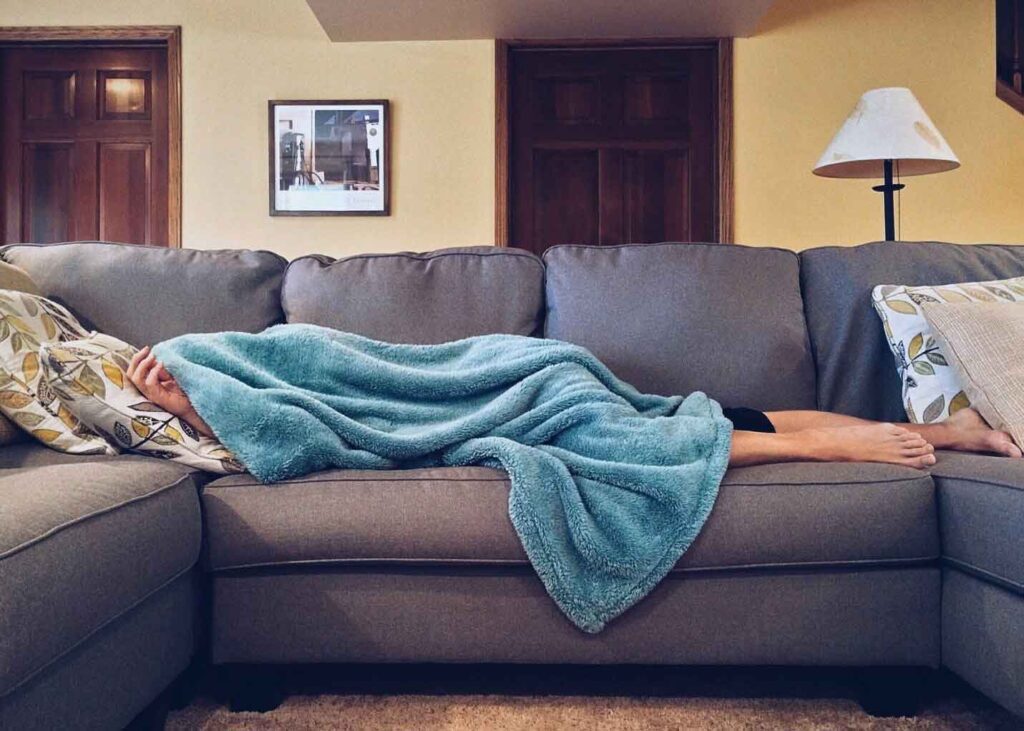It’s a Saturday afternoon, and you’re watching the latest episode of American Horror Story. But for some inexplicable reason, you drift off to sleep.
Perhaps, you’ve never thought much about it or you always find an excuse to justify your daytime drowsiness. However, if this has happened multiple times, then it’s certainly a cause for concern. Chances are, you’re suffering from a sleep disorder known as narcolepsy.
It’s estimated that this condition affects just 1 in every 2,000 individuals. So it’s pretty rare. More importantly, though, narcolepsy has been linked to several psychiatric disorders. Read on to learn more about narcolepsy and its relation to mental health.
What Is Narcolepsy?
Narcolepsy is a type of sleep disorder characterized by excessive drowsiness during the day. To better understand this, let’s take a look at what happens when you sleep.
Now, when we hit the sack, our brains go through four stages of sleep. Stages 1 to 3 are classified as non-rapid eye movement (NREM). In these initial stages, one only falls asleep lightly.
It’s not until the fourth stage- known as rapid eye movement (REM)- that we fall into deeper sleep. Under normal circumstances, it takes anywhere between 1 and 1 ½ hours to reach the REM stage. For narcoleptics, however, they enter this stage within 15 minutes of falling asleep.
Narcolepsy and Mental Health
More often than not, narcolepsy occurs alongside a mental illness, particularly anxiety and depression. Put simply; you’re more susceptible to psychiatric disorders if you suffer from narcolepsy. Here are a few statistics that prove this:
- One survey showed that up to 57% of narcoleptics suffered from depression as well
- The same study revealed that about 53% of the patients experienced anxiety disorders like social phobia and panic attacks
- In a different study that examined pediatric narcolepsy, children with this sleep disorder were twice more likely to get ADHD symptoms than those with normal sleeping patterns
More research should be done to determine the specific link between narcolepsy and mental illnesses. But the few studies conducted so far show a pretty strong correlation; and understandably so.
This sleep disorder throws off your wake-and-sleep cycle, meaning you end up with disrupted sleep patterns. As a result, this interferes with your ability to concentrate at work, study, drive, engage in hobbies and lead your normal day-to-day life.
In worst case scenarios, narcolepsy can cost you your job, relationship and other crucial things. Such events can cause you to fall into depression or have anxiety issues like panic attacks.
Tips to Manage Narcolepsy
Unfortunately, there’s no cure for this sleep disorder. But, there are several things you can do to manage it better, such as:
Scheduling daytime naps strategically

If you’re narcoleptic, you’re bound to feel drowsy at some point. So the best thing you can do is to schedule daytime naps. If you tend to get drowsy around noon, then purposely take a short nap at that time.
Your naps should only last 30 minutes or less. Any longer than that, you’ll likely enter the REM stage and have more difficulty waking up. Obviously, taking naps while you’re at work can be tricky. So it’s important to be upfront with your employer from the get-go.
Avoiding caffeine
Most narcoleptics try to avoid drowsiness by taking caffeine. And while it might work, this isn’t the right way to deal with it.
Resorting to caffeinated drinks makes it challenging to fall asleep at night and may lead to more fragmented sleep patterns. On the same point, avoid nicotine and alcohol, especially in the evening. They will only exacerbate the symptoms of the sleep disorder.
If you’ve wondered whether narcolepsy is related to mental health, the answer is yes. Narcoleptics have a higher risk of suffering psychiatric disorders like depression and anxiety. However, there are ways to manage the sleep disorder’s symptoms; and hence, minimize the risk.







